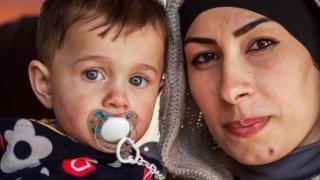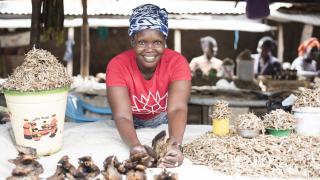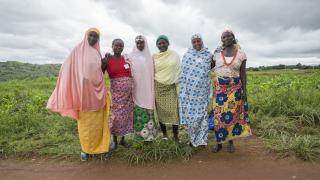Resourcing change: Supporting women's rights organisations in fragile and conflict affected states.
Increasing Women's Rights Organisations' independent role in leading programming and advocacy.
Access to core and flexible funding – in recognition of women’s rights organisations’ greater knowledge and experience of their contexts – enables them to prioritise and respond to what’s needed.
Funded by the UK’s Conflict, Stability and Security Fund, our ‘Resourcing Change’ project – in partnership with the Women's International League for Peace and Freedom (WILPF) and Saferworld – has provided 27 women’s rights organisations in Nigeria, South Sudan and Yemen with an average of £35,000 in flexible core funding, with relatively easier requirements and process.
Interview series with Resourcing Change partners
When women’s rights organisations are given the flexibility to decide their own priorities and develop their own projects, there are clear positive impacts for women and girls. To mark the 24th anniversary of UN Security Council Resolution 1325 on Women, Peace and Security, we share some of the incredible work that women’s rights organisations are doing in Nigeria, South Sudan and Yemen, through the Resourcing Change project.
Realities for women's rights organisations in South Sudan
In this video, we hear from Susan Pasquale from Women Advancement Organisation and Anna Tazita Samuel from Women for Change. They share their stories and perspectives on how the flexible funding from Resourcing Change is helping them to improve the lives of the women that they work with.
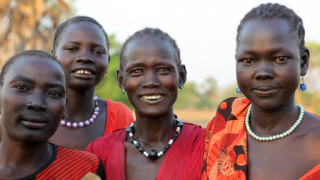
Resourcing change: Supporting women’s rights organisations in fragile and conflict-affected states
This funding has enabled them to continue responding to their self-identified community needs even when these change unexpectedly, strengthen their organisational capacities to work independently and allowed them to come together and learn from each other.
This briefing paper presents the main outcomes and learning from this project and sets out recommendations for donors and international organisations seeking to meaningfully support women’s rights organisations in fragile and conflict-affected states.
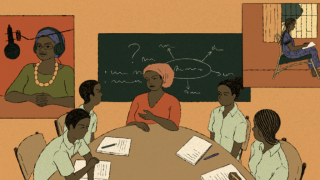
Localising Women, Peace and Security
Taking a different approach to partnering with and resourcing women’s organisations in fragile settings to enable locally led and integrated WPS interventions
In recognition of women’s rights organisations’ greater knowledge and experience of their contexts, core, flexible and accessible funding enables them to prioritise and respond to what’s needed and to fully implement the Women, Peace and Security (WPS) agenda across all pillars. This briefing paper outlines the links between the impacts of the women’s rights organisations’ work and the advancement of the WPS agenda. On the 23rd anniversary of the first UN Security Council Resolution 1325 on WPS, this briefing re-centres the importance of women in civil society as leaders of building and sustaining inclusive peace, and sets out recommendations for donors and international organisations seeking to more effectively implement WPS and advance gender justice.
Read more
Syrian Refugees living in the Kurdistan Region of Iraq share their experiences, challenges and calls for action.
Women Pave the Path to Peace in South Sudan
subtitle: As South Sudan marks Peace Agreement Day this year, it stands on the brink of another deadly crisis. But women hold the key to a brighter future.
As South Sudan marks Peace Agreement Day this year, it stands on the brink of another deadly crisis – but women hold the key to a brighter future.
20 MAY 2021 | DEVEX
Buki Onyishi, Country Director of our Nigeria programme writes for Devex.
"I challenge someone to tell me the value for money that is represented by ending a program halfway through."

